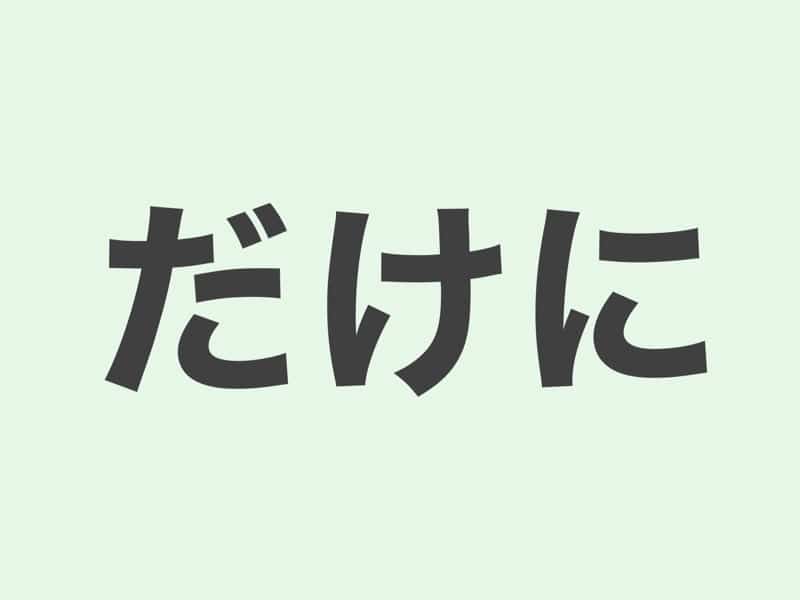説明 (Explanation)
文法(Grammar):[Reason] + だけに + [Result]
意味 (Meaning):日本語で特定の理由や条件に基づいて生じる結果や重要性を表す表現です。「そのために」「その結果として」という意味合いで使われます。
英語(English):The Japanese expression だけに indicates that a result or situation is significant specifically because of a preceding reason or condition. It can be translated as “precisely because,” “exactly because,” or “all the more so.”
JLPT Textbook Recommendations
例文 (Examples)
- この製品は人気があるだけに、品切れになることが多い。
- 彼女は長年の経験があるだけに、アドバイスが的確だった。
- この映画は話題になっただけに、期待も大きかった。
- たくさん準備しただけに、プレゼンテーションは成功した。
ひらなが (Hiragana)
- このせいひんはにんきがあるだけに、しなぎれになることがおおい。
- かのじょはながねんのけいけんがあるだけに、アドバイスがてきかくだった。
- このえいがはわだいになっただけに、きたいもおおきかった。
- たくさんじゅんびしただけに、プレゼンテーションはせいこうした。
英語翻訳 (English Translation)
- This product is popular, so it often sells out.
- Her advice was precise exactly because she has many years of experience.
- This movie became a topic of discussion, so expectations were high.
- Because I prepared a lot, the presentation was successful.





コメント